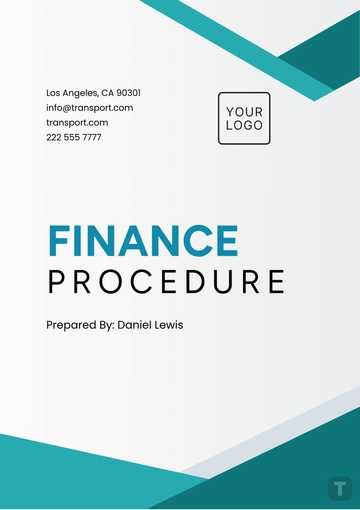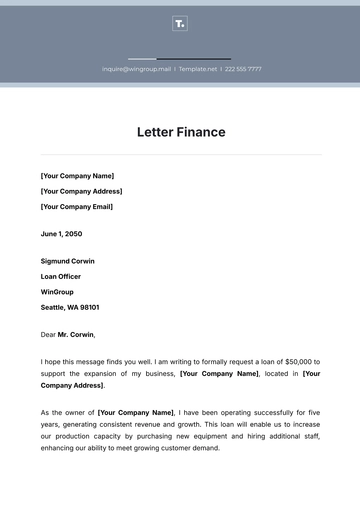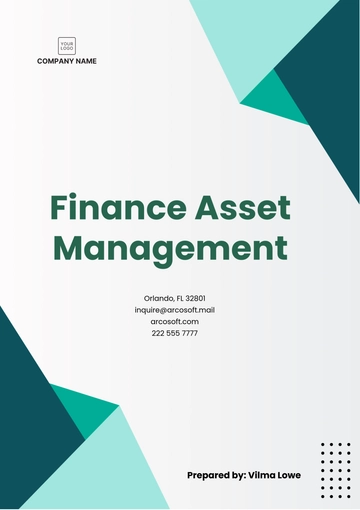Free Wealth Management White Paper

Navigating Wealth: Strategies for Financial Prosperity
Prepared by: [YOUR NAME]
Organization: [YOUR COMPANY NAME]
Date: [DATE]
I. Executive Summary

This white paper provides an in-depth analysis and strategic advice for effectively managing and increasing personal wealth. Aimed at individuals and families, it covers key areas such as investment strategies, financial planning, tax optimization, and estate planning. This document is crafted to assist clients of [YOUR COMPANY NAME] in navigating the complexities of wealth accumulation and preservation.
II. Introduction to Wealth Management
Wealth management is a holistic approach to handling financial affairs and investment opportunities aimed at achieving long term financial security and growth. At [YOUR COMPANY NAME], we believe in empowering our clients with the knowledge and tools to make informed decisions about their wealth.
III. Investment Strategies
Understanding the different investment strategies is crucial for building a portfolio that aligns with your financial goals. Below, we explore several key strategies:
Asset Allocation: This is the strategy of spreading your investments across different asset classes (like stocks, bonds, real estate, and cash equivalents) based on your risk tolerance, financial goals, and investment horizon.
Risk Management: This involves identifying, assessing, and prioritizing risks followed by coordinated efforts to minimize, monitor, and control the probability or impact of unfortunate events or to maximize the realization of opportunities.
Diversification Benefits: Diversification is the practice of spreading investments across different assets to reduce exposure to any one particular asset. The benefits include potentially lowering overall risk and volatility in a portfolio.
Long-term vs. Short-term Investment: Long-term investment focuses on buying and holding investments for an extended period, usually more than a year, with the aim of building wealth over time. Short-term investment involves buying and selling assets within a shorter time frame, often with the goal of capitalizing on market fluctuations or specific opportunities.
IV. Financial Planning
Effective financial planning involves a detailed assessment of your current financial status and the creation of a strategy tailored to meet future needs. Components include:

Budgeting: The process of planning how to allocate and manage your income and expenses.
Emergency Savings: Money set aside specifically to cover unexpected expenses or financial emergencies.
Retirement Planning: Creating a strategy to ensure financial security during retirement years by estimating expenses, identifying income sources, and contributing to retirement accounts.
Education Funds: Savings or investments designated for educational expenses, including tuition fees and related costs for pursuing higher education.
V. Tax Optimization
Taxation can significantly impact wealth accumulation. This section provides insights on how to optimize your tax situation:
Tax Strategy | Description | Benefits |
|---|---|---|
Income Splitting | Dividing income among family members to lower overall tax burden. | Reduces taxable income at higher rates. |
Tax-Deferred Investments | Investments that grow tax free until withdrawals are made. | Compounds growth, reducing immediate tax liability. |
VI. Estate Planning
Estate planning ensures your wealth is appropriately managed and distributed according to your wishes upon your passing. Key components include:
Wills and Trusts: Legal documents that outline how your assets and property should be distributed after your death. A will specifies instructions for distribution, while trusts can provide ongoing management and control of assets.
Healthcare Directives: Also known as advance directives, these documents specify your preferences for medical treatment in case you become unable to communicate your wishes. They often include a living will and healthcare power of attorney.
Power of Attorney: A legal document that grants someone else the authority to act on your behalf in financial or legal matters, either immediately or if you become incapacitated.
Charitable Giving: In estate planning, this involves leaving assets or property to charitable organizations or causes, either through direct gifts or establishing a charitable trust or foundation.
VII. Conclusion
In conclusion, effective wealth management requires a comprehensive understanding of various financial areas. At [YOUR COMPANY NAME], we are dedicated to providing our clients with expert advice and strategies to secure and enhance their financial legacy. For personalized advice, please contact your dedicated advisor at [YOUR COMPANY NUMBER].
- 100% Customizable, free editor
- Access 1 Million+ Templates, photo’s & graphics
- Download or share as a template
- Click and replace photos, graphics, text, backgrounds
- Resize, crop, AI write & more
- Access advanced editor
Discover the Wealth Management White Paper Template on Template.net, offering an editable and customizable solution for creating professional wealth management documents. Tailor content effortlessly using our Ai Editor Tool to meet specific needs. Enhance wealth management processes with this versatile template, ensuring clarity and efficiency in your documentation. Streamline your wealth management strategy with ease using this template.





























